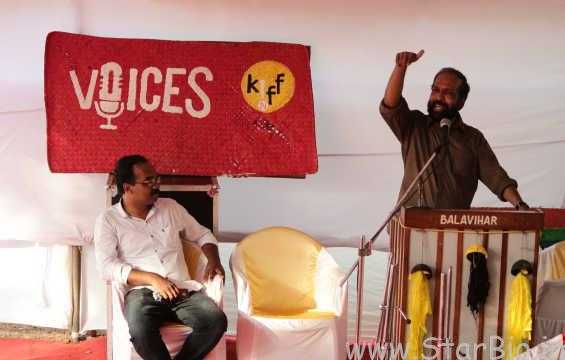When you hear the topic ‘Renaissance and new technology’, the first association might be with philosophy, or history. So, when AP Ahammed cleared his throat to start speaking, the audience was unaware it was in for a wonderful oration combining history, philosophy, humour and sarcasm encompassing contemporary issues.
Thus, the session aptly titled Voices at the second Kazhcha-NIV Indie Film Festival (KNIFF) began with a deep, thought-provoking speech by the writer, orator and teacher who has scores of inspiring speeches and critical writings to his credit.
Ahammed began with a definition of renaissance as the construction of humanity. While the word was interpreted as The Awakening in Europe in particular and the West in general, it was translated into the Malayalam with some semantic disturbances. However, anywhere in the world a renaissance, he said, is built upon two strong factors — modern education and scientific spirit.
The conundrum whether god created humans or humans created god is still debated today. The Renaissance brought about a paradigm shift in the thoughts of people; rather than blindly following religion, its interpretation by people and the opinions of people began to get prominence.
Ahammed has an uncanny style of blending philosophy, history and facts with humour and contemporary relevance. His rhetoric traversed the length and breadth of literature, history and ideologies. From Paulo Coelho’s The Alchemist to Swami Vivekananda’s famous Chicago speech, Ahammed left no stone unturned to drive his points home.
Over and over again, he elucidated the need to deconstruct the practice of assigning chronological boundaries to a renaissance. It is, according to him, a never-ending process.
When it comes to the scenario in Kerala, the renaissance was in the region even before 1850, the year that is conventionally thought to be the beginning of an awakening in Kerala, he said. Every new and different thought contributes to the renaissance.
Ahammed posed the question, “Where must the renaissance begin?” As answer, he said the renaissance is something that should begin within the system.
Ahammed brought in the historical instances from the famous Vaikkom satyagraha and the Guruvayoor strike to shed more light on the idea. For him, renaissance nowadays is getting confined to the commemoration of renaissance events of the past.
Bringing in the contemporary issue of Sabarimala, Ahammed said a renaissance will happen in its truest sense only if all places of worship everywhere are opened to everyone irrespective of religion, caste, class or gender, thereby giving the individual freedom within the larger framework of religion.
He ended his speech on a powerful note, saying out loud that the renaissance must not stop.

